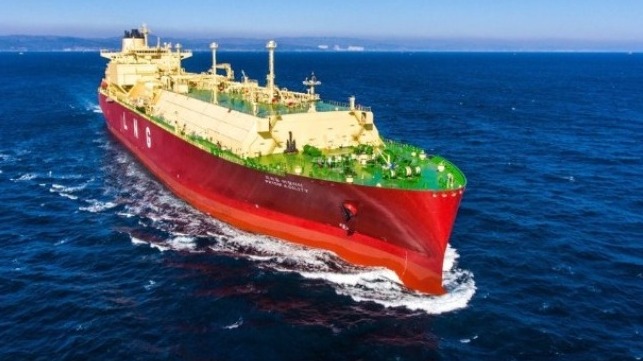Korean Shipbuilder and Class Society Working on Hydrogen Standards

An initiative is being launched in South Korea to develop safety regulations and protocols for the operation of hydrogen ships. It comes as part of a broader push by the Korean shipbuilding industry to develop its position in hydrogen as a fuel source for the shipping industry.
The Korea Shipbuilding & Offshore Engineering Co. will work with the Korean Register of Shipping to develop what they believe will be the first set of safety standards for hydrogen-fueled ships. They plan to draft the proposed standards and then submit them to the International Maritime Organization by 2022. According to the partners, currently, no regulations have been developed by the class societies to guide the construction of hydrogen ships.
KSOE and its parent company, Hyundai Heavy Industries Holdings, have been working to build their presence in the developing market for hydrogen. In January, HHIH reported that it plans to invest nearly $900 million over the next five years in the development of eco-friendly ships. They said they would invest in the development of construction technology and the construction of eco-friendly production facilities to reinforce their business competitiveness. Among the technologies that Hyundai plans to focus on hydrogen and ammonia as a fuel source as well as dual-fuel propulsion. They will also work to advance smart ship technology and autonomous ships.
Last year, another division of the company, Korea Shipbuilding & Marine Engineering obtained an approval in principle (AIP) from DNV for the design of a solid oxide fuel cell power generation system. The system is designed to replace 3-megawatt power generation engines used on medium and large crude oil carriers (Aframax-class) with solid oxide fuel cells. According to Hyundai, the system will increase power generation by 43 percent while cutting emissions and improving space utilization onboard.

that matters most
Get the latest maritime news delivered to your inbox daily.
Hyundai Heavy Industries Group, Korea Shipbuilding & Marine Engineering, and Hyundai Mipo Shipbuilding also received an AIP from DNV for a 20,000 cubic meter liquefied hydrogen carrier from the Korean Register of Shipping and the Liberian flag state authority. Korea Shipbuilding & Marine Engineering developed a liquefied hydrogen cargo treatment system and a hydrogen evaporative gas treatment system using fuel cells, and Hyundai Mipo Shipbuilding advanced the basic design of the ship. Hyundai Glovis and G Marine Service analyzed the economics and safety of liquid hydrogen in the storage and transportation process. The companies said the vessel would be the world's first large-scale liquefied hydrogen carrier that can be operated commercially.
Demonstrating what it believes to be the potential for this market, Hyundai cites a World Hydrogen Commission report which says the global hydrogen market is expected to grow to $2.5 trillion by 2050. The WHC projects that hydrogen will account for 18 percent of the total energy demand.
